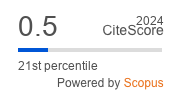Перспективы генетического программирования Т-клеток в адоптивной иммунотерапии злокачественных новообразований
Аннотация
В статье представлен обзор литературы, раскрывающий основные аспекты и области применения адоптивной Т-клеточной терапии злокачественных новообразований. Адоптивный Т-клеточный перенос позволяет излечивать метастатическую болезнь на поздних этапах прогрессирования некоторых опухолей, обладая рядом преимуществ по сравнению с классической противоопухолевой терапией. Особое внимание в обзоре уделяется возможности генетического программирования адоптивных клеток, которое повышает эффективность и безопасность лечения больных онкологического профиля. Кроме этого, рассматриваются основные проблемы введения данного метода в повседневную клиническую практику.
Об авторах
О. Л. МорозоваРоссия
Морозова Ольга Леонидовна, Доктор медицинских наук, профессор кафедры патофизиологии
119991, г. Москва, ул. Трубецкая, д. 8, стр. 2
В. В. Яковлев
Россия
Студент 3-го курса лечебного факультета
Н. А. Сушенцев
Россия
Студент 3-го курса лечебного факультета
Список литературы
1. World Cancer Report. Available at: http://www.iarc.fr/en/publications/books/wcr/wcr-order.php (accessed March 25, 2016).
2. Rosenberg S.A. et al. Durable complete responses in heavily pretreated patients with metastatic melanoma using T-cell transfer immunotherapy. Clin. Cancer Res. Off. J. Am. Assoc. Cancer Res. 2011; 17(13): 4550–4557.
3. Zarour H.M. et al. Categories of Tumor Antigens. 2003.
4. Weinberg R.A. Crowd Control: Tumor Immunology and Immunotherapy. In: The Biology of Cancer. 2nd ed. USA: Garland Science, Taylor & Francis Group, LLC; 2014: 723–795.
5. Klebanoff C.A. et al. Therapeutic cancer vaccines: are we there yet? Immunol. Rev. 2011; 239(1): 27–44.
6. Rosenberg S.A., Yang J.C., Restifo N.P. Cancer immunotherapy: moving beyond current vaccines. Nat. Med. 2004; 10(9): 909–915.
7. Klebanoff C.A. et al. Determinants of successful CD8+ Tcell adoptive immunotherapy for large established tumors in mice. Clin. Cancer Res. Off. J. Am. Assoc. Cancer Res. 2011; 17(16): 5343–5352.
8. Restifo N.P. et al. Identification of human cancers deficient in antigen processing. J. Exp. Med. 1993; 177(2): 265–272.
9. Restifo N.P. et al. Loss of functional beta 2-microglobulin in metastatic melanomas from five patients receiving immunotherapy. J. Natl. Cancer Inst. 1996; 88(2): 100–108.
10. Khong H.T., Restifo N.P. Natural selection of tumor variants in the generation of “tumor escape” phenotypes. Nat. Immunol. 2002; 3(11): 999–1005.
11. Zhang J. et al. A novel retinoblastoma therapy from genomic and epigenetic analyses. Nature. 2012; 481(7381): 329–334.
12. Stratton M.R. Exploring the genomes of cancer cells: progress and promise. Science. 2011; 331(6024): 1553–1558.
13. Pule M.A. et al. Virus-specific T cells engineered to coexpress tumor-specific receptors: persistence and antitumor activity in individuals with neuroblastoma. Nat. Med. 2008; 14(11): 1264–1270.
14. Robbins P.F. et al. Tumor regression in patients with metastatic synovial cell sarcoma and melanoma using genetically engineered lymphocytes reactive with NY-ESO-1. J. Clin. Oncol. Off. J. Am. Soc. Clin. Oncol. 2011; 29(7): 917–924.
15. Brentjens R.J. et al. Safety and persistence of adoptively transferred autologous CD19-targeted T cells in patients with relapsed or chemotherapy refractory B-cell leukemias. Blood. 2011; 118(18): 4817–4828.
16. Porter D.L. et al. Chimeric antigen receptor-modified T cells in chronic lymphoid leukemia. N. Engl. J. Med. 2011; 365(8): 725–733.
17. Kochenderfer J.N. et al. Eradication of B-lineage cells and regression of lymphoma in a patient treated with autologous T cells genetically engineered to recognize CD19. Blood. 2010; 116(20): 4099–4102.
18. Johnson L.A. et al. Gene therapy with human and mouse T-cell receptors mediates cancer regression and targets normal tissues expressing cognate antigen. Blood. 2009; 114(3): 535–546.
19. Varela-Rohena A. et al. Control of HIV-1 immune escape by CD8 T cells expressing enhanced T-cell receptor. Nat. Med. 2008; 14(12): 1390–1395.
20. Parkhurst M.R. et al. T cells targeting carcinoembryonic antigen can mediate regression of metastatic colorectal cancer but induce severe transient colitis. Mol. Ther. J. Am. Soc. Gene Ther. 2011; 19(3): 620–626.
21. Sadelain M., Brentjens R., Rivière I. The promise and potential pitfalls of chimeric antigen receptors. Curr. Opin. Immunol. 2009; 21(2): 215–223.
22. Morgan R.A. et al. Case report of a serious adverse event following the administration of T cells transduced with a chimeric antigen receptor recognizing ERBB2. Mol. Ther. J. Am. Soc. Gene Ther. 2010; 18(4): 843–851.
23. Baeuerle P.A., Itin C. Clinical experience with gene therapy and bispecific antibodies for T cell-based therapy of cancer. Curr. Pharm. Biotechnol. 2012; 13(8): 1399–1408.
24. Choi B.D. et al. Bispecific antibodies engage T cells for antitumor immunotherapy. Expert Opin. Biol. Ther. 2011; 11(7): 843–853.
25. Wrzesinski C. et al. Hematopoietic stem cells promote the expansion and function of adoptively transferred antitumor CD8 T cells. J. Clin. Invest. 2007; 117(2): 492–501.
26. Wrzesinski C. et al. Increased intensity lymphodepletion enhances tumor treatment efficacy of adoptively transferred tumor-specific T cells. J. Immunother (Hagerstown Md. 2010; 33(1): 1–7.
27. Dudley M.E. et al. Cancer regression and autoimmunity in patients after clonal repopulation with antitumor lymphocytes. Science. 2002; 298(5594): 850–854.
28. Dudley M.E. et al. Adoptive cell therapy for patients with metastatic melanoma: evaluation of intensive myeloablative chemoradiation preparative regimens. J. Clin. Oncol. Off. J. Am. Soc. Clin. Oncol. 2008; 26(32): 5233–5239.
29. Baitsch L. et al. Exhaustion of tumor-specific CD8+ T cells in metastases from melanoma patients. J. Clin. Invest. 2011; 121(6): 2350–2360.
30. Ahmadzadeh M. et al. Tumor antigen-specific CD8 T cells infiltrating the tumor express high levels of PD-1 and are functionally impaired. Blood. 2009; 114(8): 1537–1544.
31. Paulos C.M. et al. Microbial translocation augments the function of adoptively transferred self/tumor-specific CD8+ T cells via TLR4 signaling. J. Clin. Invest. 2007; 117(8): 2197–2204.
32. Brentjens R. et al. Treatment of chronic lymphocytic leukemia with genetically targeted autologous T cells: case report of an unforeseen adverse event in a phase I clinical trial. Mol. Ther. J. Am. Soc. Gene Ther. 2010; 18(4): 666–668.
33. Di Stasi A. et al. Inducible apoptosis as a safety switch for adoptive cell therapy. N. Engl. J. Med. 2011; 365(18): 1673– 1683.






































